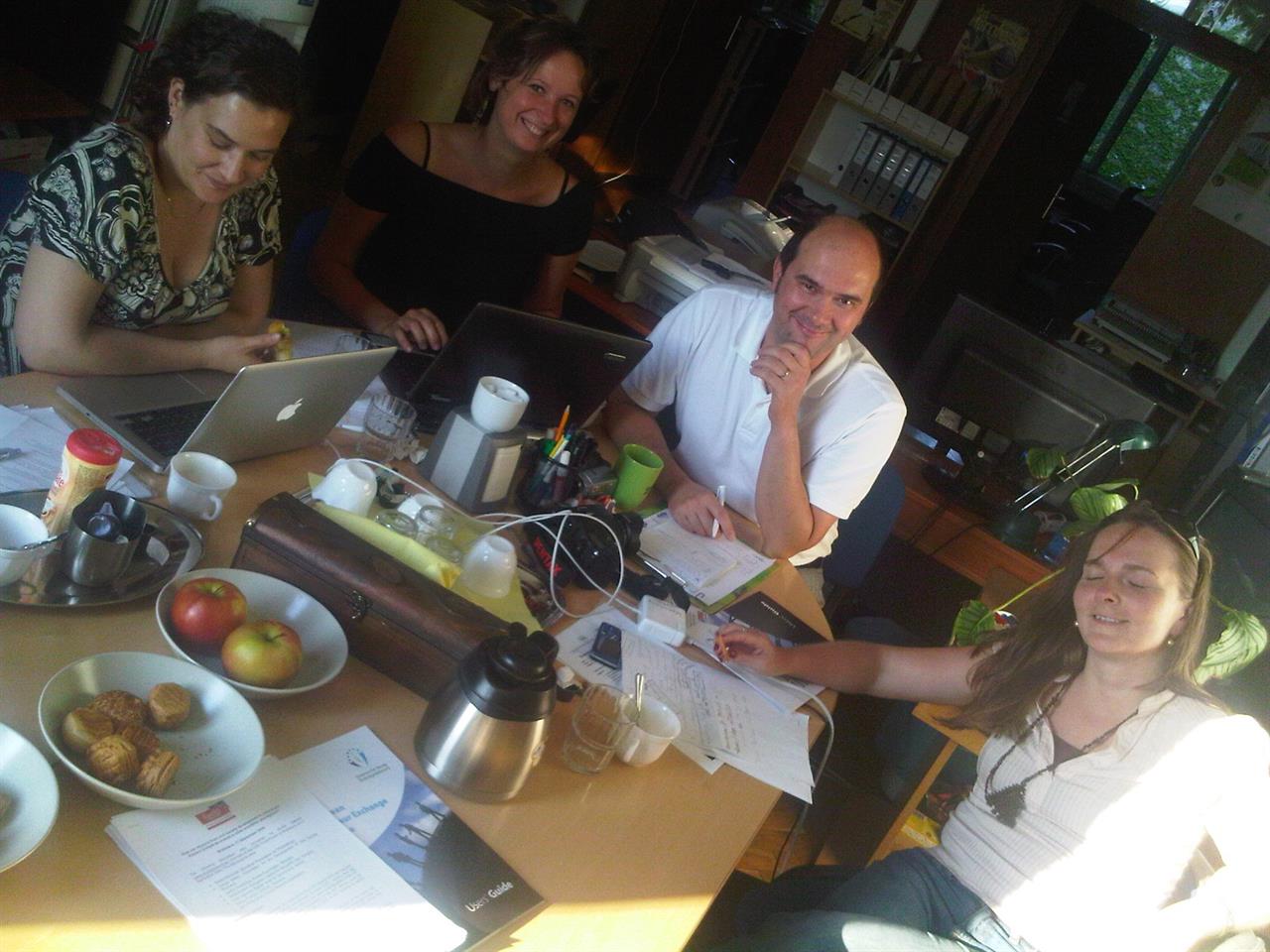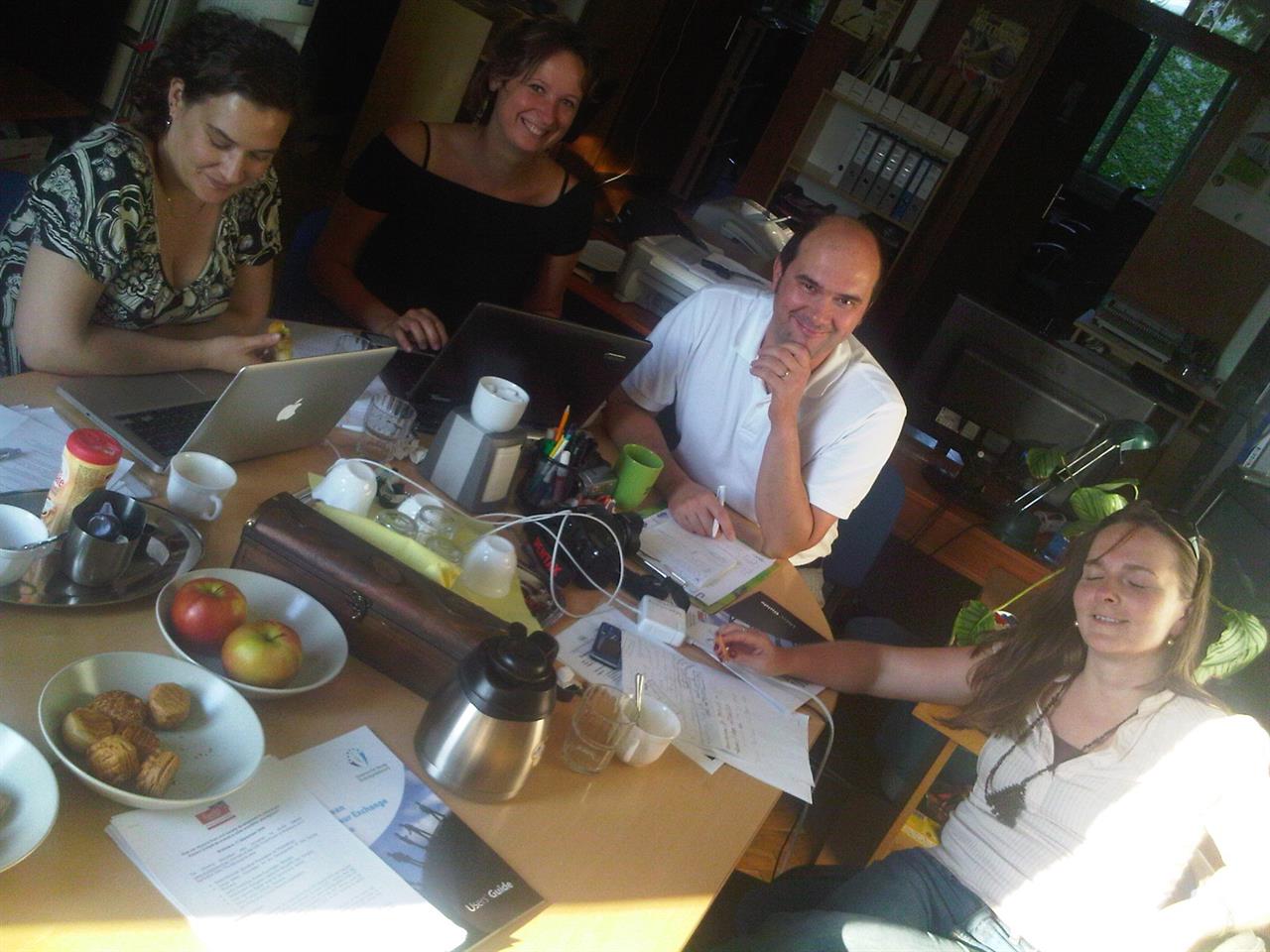
It seems the ‘I can’t stand Filippo’ fan club is growing in membership. Even in Hungary it has found a champion in Miklos Barabas: another old school who feels his post of Brussels gatekeepers threatened by the wave of change I represent.
It’s flattering isn’t it?
This week was Budapest. I spent 3 full days with Benny hosted by our member and partner Barbara Eros, DemNet. You can see her on the right in the picture blinded by the sun.
I was a bit worried about this trip. In 2008 we run our first Euclid conference in Budapest. It was a great event. pretty cool. Our partner was CIB, the local branch of Intesa Sanpaolo. The Minister of Economy and Prince Habsburg, President of the Red Cross opened the event. However, we failed making any strong partnership with local civil society organisations. At the time I didn’t know Barbara. So there was no follow-up in the country.
Barbara worked hard to make our trip a success. In 3 days we met representatives of all the main families in the sector: social enterprisy young guys, civil society pioneers, donors, government… and even 2 hours for relaxing in a spa. We were really welcomed and it was a learning experience.
First of all, the curtain is still there despite not being of iron anymore. the country is still in transition – as they like define everything in that part of Europe. What’s transition? I’m not sure I really grasped the concept but it refers to society moving from Communism to Western-style liberal democracy. The Communist past is still haunting. People who suffered or took advantage are all alive. But the future is the EU. It’s a work in progress.
Except for the elite normally trained and funded by the Americans even in civil society you can see the gap between Old and New Member States. However, this doesn’t mean such a country as Hungary is underdeveloped. That was the silly assumption of Chirac when he pronounced the famous: “They haven’t missed an opportunity to keep quite” referring to Eastern countries which supported Bush in his invasion of Iraq.
I would argue the opposite. You can still find here the passion and energy especially in civil society. People struggle looking for their new identity and place in society. Civil society is in the fore front of such a struggle including the pioneers – the communist youth association whose members have found a second career in the sector. It’s not like in Brussels where you find well-paid bureaucrats accustomed to speak on request.
Founder of the European House and member of the European Economic Social Committee, Miklos is one of the Hungarians who comfortably settled down in Brussels. He found a second career – after being a spy for secret service of old regime as appeared in the papers recently – becoming the Ambassador of Hungarian civil society. In reality he’s a gatekeeper with 500 little local associations depending on his generosity. He dispenses small grants thanks to his post at National Civic Fund and takes them in a trip aboard once a year.
I don’t think this going to last longer. The new government is keen on getting rid of the old guards. I guess the head of Miklos will fall soon. Already several of his friends have been in touch looking for new opportunities.
Whatever happens I can see civil society in this part of Europe throwing away the old burdens, overcoming its sense of inferiority and join the peers.
What still surprises me are the links with international NGOs. Civil society here look at CONCORD and international development peers as their main reference point as they hadn’t joined the EU yet. I actually encouraged them to give up with these old links and take fully part in European platform. Rather than Africa NGOs in CEE should focus on neighbour countries where they have historical links and share the ‘transition’ culture.
Next year this will be the topic of both the Hungarian and Polish presidencies of the EU. Brigitte – you can see her on the left in the picture – and I will have plenty of time to debate the topic.
I feel I have become the preacher of a new international policy for New Member States capitalizing on their unique skills instead of mimicking the old Members and some of their silly policies like international aid.
On the other hand we must send on holiday the Chirac-type who are still pretty patronizing with our fellow Europeans. Old Europe is hard to die in Both Western and Eastern Europe.
Vuoi accedere all'archivio di VITA?
Con un abbonamento annuale potrai sfogliare più di 50 numeri del nostro magazine, da gennaio 2020 ad oggi: ogni numero una storia sempre attuale. Oltre a tutti i contenuti extra come le newsletter tematiche, i podcast, le infografiche e gli approfondimenti.

